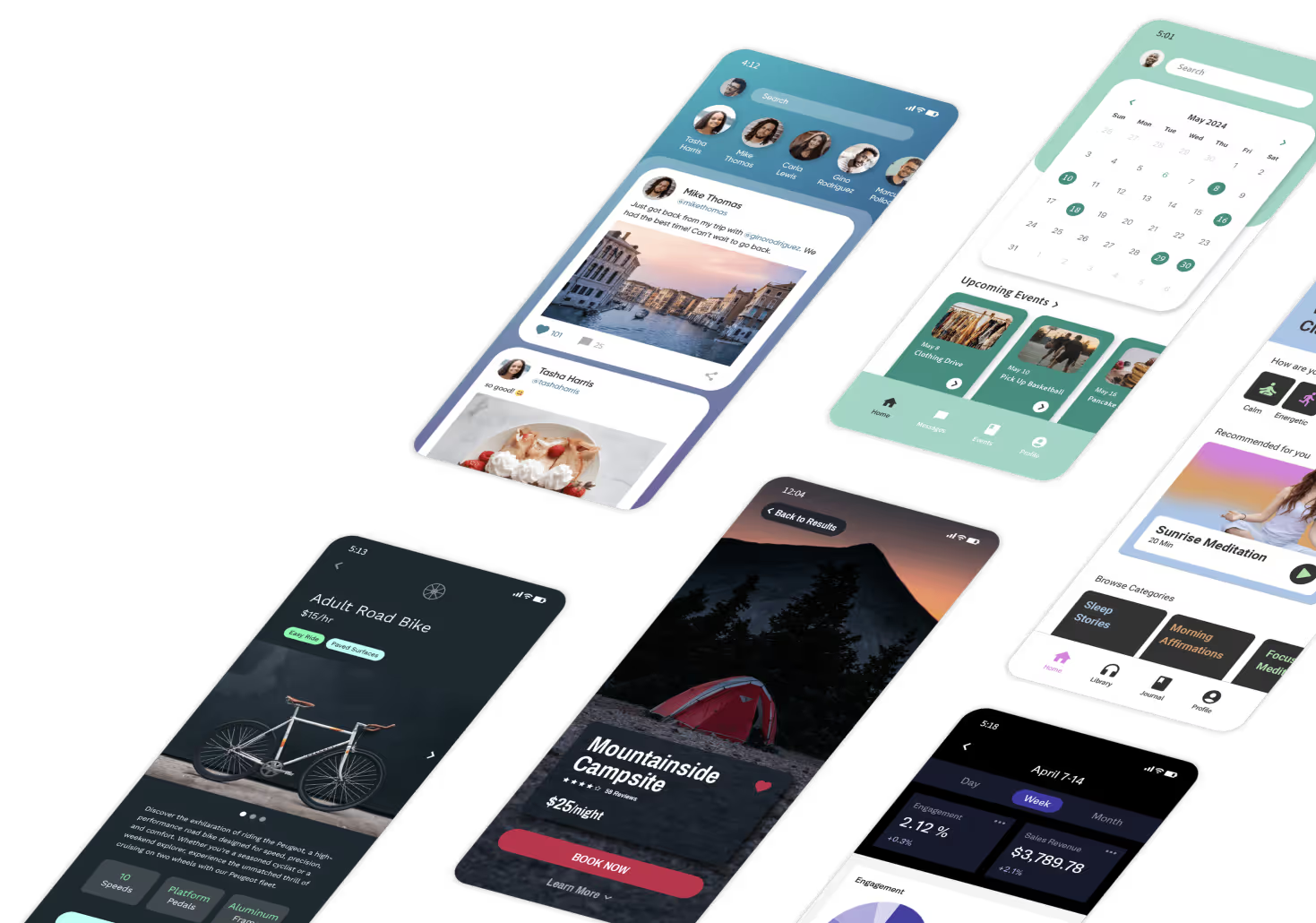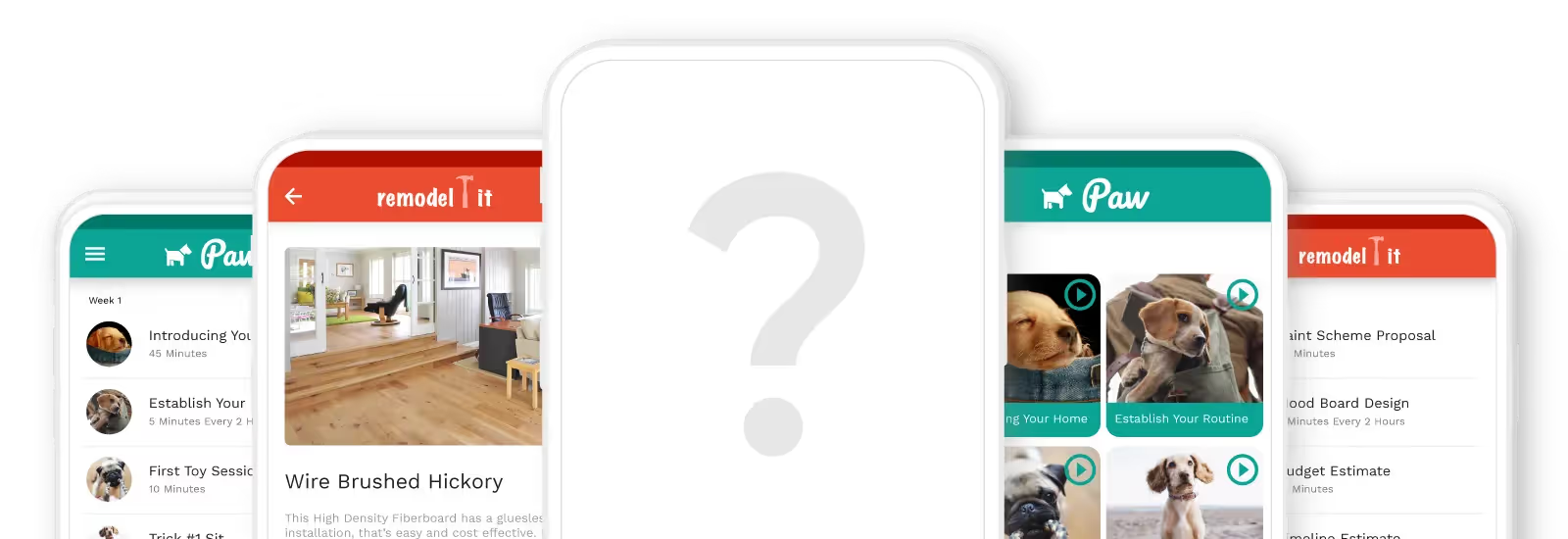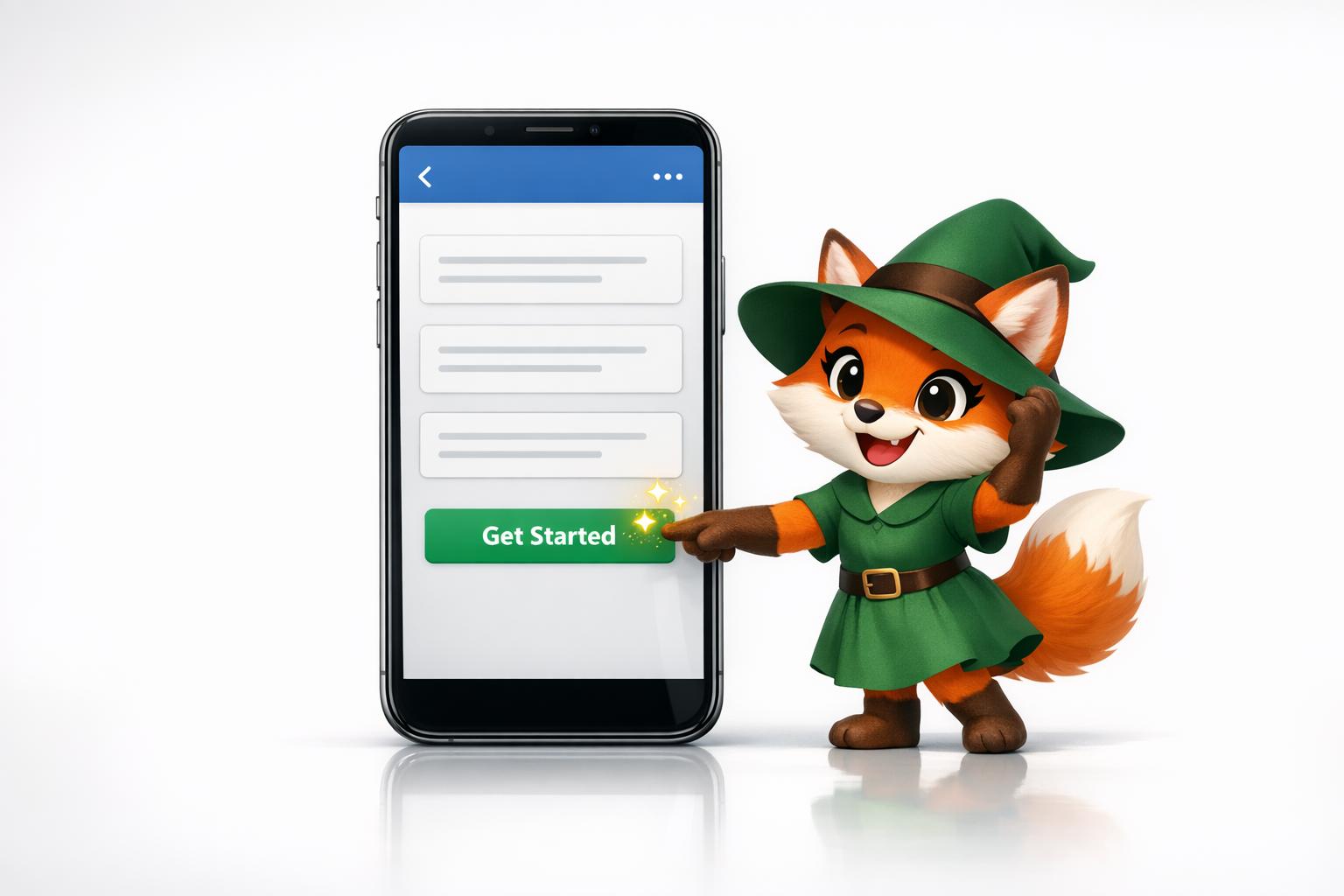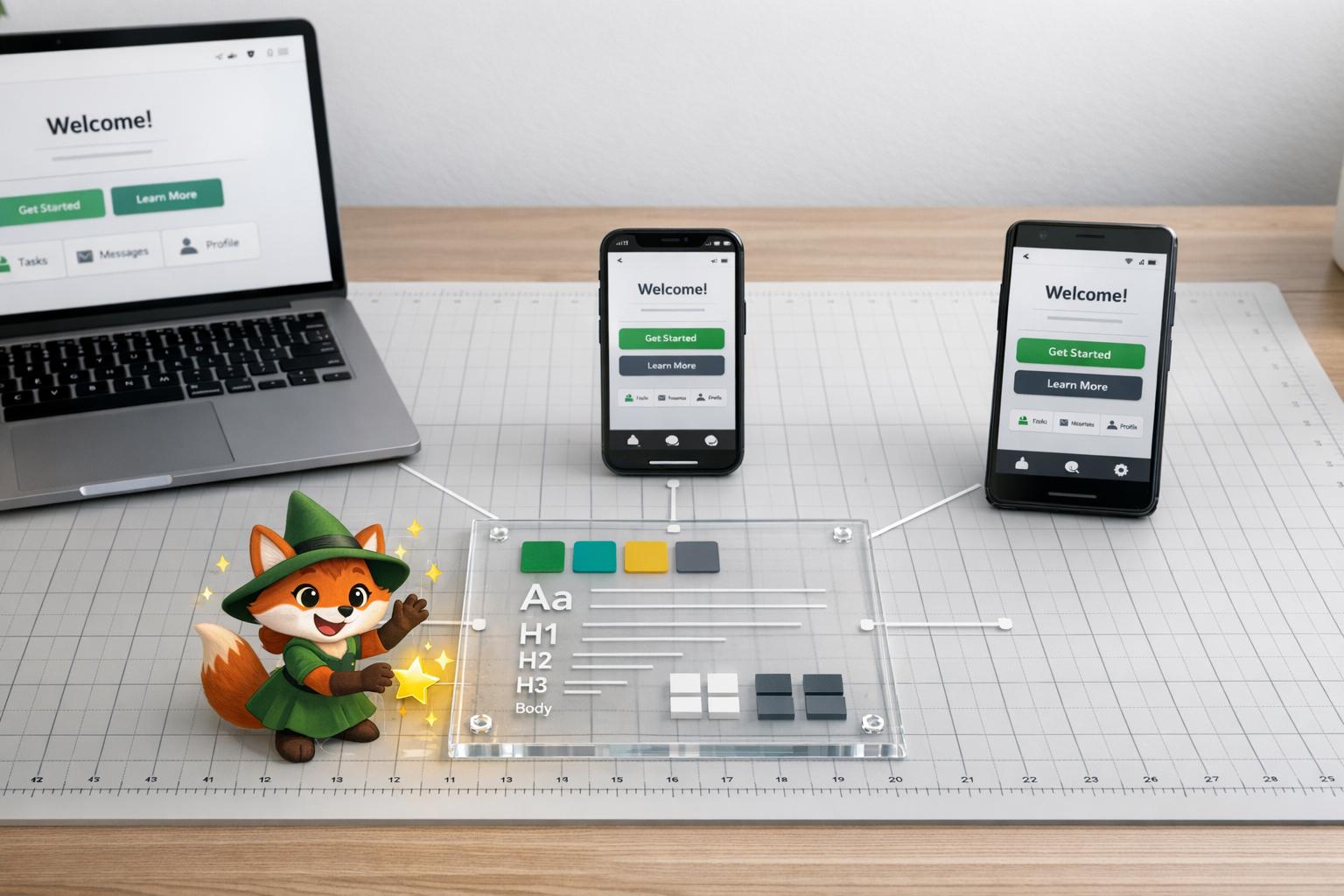Managing an app development project can feel like juggling a dozen spinning plates at once. Between coordinating team members, tracking deadlines, gathering client feedback, and ensuring technical requirements are met, even experienced developers can find themselves overwhelmed by the complexity of bringing an app from concept to launch.
The right tools make all the difference in keeping your project on track. Adalo is a no-code app builder for database-driven web apps and native iOS and Android apps—one version across all three platforms. AI-assisted building and streamlined publishing enable launch to the Apple App Store and Google Play in days rather than months, giving project managers fewer technical hurdles and more time to focus on organization and execution.

Why Adalo Is Perfect for Streamlined App Project Management
Adalo is a no-code app builder for database-driven web apps and native iOS and Android apps—one version across all three platforms, published to the Apple App Store and Google Play. This unified approach means less complexity and fewer moving parts to manage throughout your development project, allowing you to focus on what really matters: delivering a quality app on time and within budget.
When you're managing an app development project, having a platform that simplifies deployment across multiple channels is a game-changer. Instead of juggling separate codebases or coordinating different development timelines for iOS and Android, you can streamline your workflow and keep your project organized from start to finish.
However, without proper project management, things can quickly become disorganized and chaotic! Nobody wants that. That's why we're here to share some tips on how to manage a no-code app development project so you can stay organized and app your project management game!

Start with a solid plan
As with any project, the first step is to create a plan or a scope for your app development project. This plan should outline the goals, requirements, timelines, and milestones of the project. Especially when working with a no-code development platform, it's important to have a clear understanding of the platform's capabilities and limitations, and communicate that clearly to your client. This will help you set realistic expectations for the project and avoid any unexpected roadblocks down the line.
Run a kickoff meeting
Running a kickoff meeting is one of the most important steps when starting a project. It sets the tone for the entire project and gets everyone involved in the process on the same page. Here are a few tips on how to run a successful kickoff meeting:
If you have a project team, introduce them!
Unless you’re a solo freelancer, you may be working with a few others. Start by introducing everyone who will be involved in the project. This might include designers, developers, project managers, and the client. Take a few minutes to allow each person to introduce themselves and talk about their role in the project.
Discuss the no-code development platform
No-code development is still a relatively new concept, so it's important to discuss the platform you'll be using. This might include a demo of the platform and a discussion of its capabilities and limitations. Make sure everyone is on the same page about what can and can't be done with the tool you’re using.

Talk about communication!
Effective communication is key to any successful project, so it's important to discuss how you’d like communication to take place. This might include regular check-ins, progress reports, and status updates. Establish clear communication channels and make sure everyone knows who to contact with questions or concerns.
Establish a project timeline
This means setting deadlines for milestones and deliverables and making sure everyone is clear on the timeline. It's a good idea to build in some flexibility in case of unexpected delays, but it's also important to keep the project on track!
Pick your project management tool
This can be anything from Trello to Asana to Monday.com, and there are many other options available. The important thing is to choose a tool that fits the needs of your team and the project. A project management tool can help you assign tasks, set deadlines, and track progress.
Be responsive!
Make sure that emails, questions, and concerns are addressed in a timely manner. This gives your client confidence that you’re committed to doing your best in a project and helps eliminate any miscommunication.
Provide delight
As an app development agency, it's important to provide more than just a functional app for your clients. To truly stand out and build long-term relationships, you need to provide a delightful experience for your clients. Here are some fun ways to do just that:
1. Surprise them with the unexpected
This might include Easter eggs, hidden features, or small touches that make the app feel special. These surprises can create a sense of delight and build an emotional connection between your client and the app.

2. Offer personalized support
Providing personalized support can also be a great way to provide delight for your clients. Take the time to get to know your client and their needs, and be responsive and proactive in addressing any questions or concerns. A little bit of extra attention and care can go a long way in building a strong relationship.
3. Celebrate milestones
When you reach a milestone in the app development process, take the time to celebrate it with your client. This might include a congratulatory message, sending a small gift, or simply acknowledging the achievement. Celebrating milestones can create a sense of excitement and accomplishment, and make the development process feel more fun and rewarding.
Test, test, test
Testing is a critical part of any development project, and it's no different with no-code development. Make sure you test the app thoroughly before launching it. This includes testing for bugs, errors, and usability. It's also a good idea to get feedback from beta testers to identify any areas for improvement.
Launch and iterate
Once the app is ready to go, it's time to launch it! But remember, launch day is just the beginning. The best apps are constantly evolving and improving based on user feedback. So be prepared to iterate and make changes as needed. This might include adding new features, fixing bugs, or tweaking the user interface.
Discuss this with your client and evaluate their needs for ongoing app support. You can do this through a monthly retainer or discuss an extension of your project contract.

Facilitate a successful handoff
A handoff is the process of transferring the project from you, or the development team, to the client or a different team that will take care of ongoing maintenance and support. Documenting the app development process is essential for a smooth handoff.
This documentation should include everything from the project scope and requirements to design elements, no-code platform, and any code snippets. It should be comprehensive, clear, and easy to understand. This documentation will make it easier for the client or maintenance team to understand the app and maintain it moving forward.
You may also want to conduct a handoff meeting where to explain the app to the client or maintenance team. During the meeting, go over the documentation and walk through the app's functionality and features. Make sure to answer any questions that come up and offer support as needed.
In conclusion, project managing a no-code app development project can be a challenging but rewarding experience. Remember, effective project management is all about seeing the big picture, but never losing sight of the little details.
FAQ
| Question | Answer |
|---|---|
| Can I easily manage a no-code app development project from start to finish? | Yes, with Adalo's No Code App Builder, you can easily manage a no-code app development project from start to finish. The platform's unified approach to building web apps, iOS, and Android apps means fewer moving parts to coordinate, allowing you to focus on solid planning, clear communication, and delivering quality results on time. |
| Why choose Adalo over other App Builder solutions? | Adalo is a no-code app builder for database-driven web apps and native iOS and Android apps—one version across all three platforms. AI-assisted building and streamlined publishing enable launch to the Apple App Store and Google Play in days rather than months. This ability to publish directly to app stores is crucial because distribution and marketing are often the hardest parts of launching a new app or business—Adalo removes that barrier entirely. |
| What should I include in a kickoff meeting for a no-code app project? | A successful kickoff meeting should include team introductions, a demo of the no-code platform with its capabilities and limitations, a discussion of communication channels, and an established project timeline with milestones. This ensures everyone is on the same page and sets clear expectations from the start. |
| Which project management tools work well for no-code app development? | Popular project management tools like Trello, Asana, and Monday.com work well for no-code app development projects. The key is choosing a tool that fits your team's needs and helps you assign tasks, set deadlines, and track progress effectively throughout the project. |
| How important is testing in no-code app development? | Testing is critical in no-code development and should be done thoroughly before launching. This includes testing for bugs, errors, and usability, as well as gathering feedback from beta testers to identify areas for improvement before your app goes live. |
| What should be included in a project handoff to clients? | A successful handoff should include comprehensive documentation covering the project scope, requirements, design elements, platform details, and any code snippets. Conduct a handoff meeting to walk through the app's functionality, answer questions, and ensure the client or maintenance team can confidently manage the app moving forward. |














